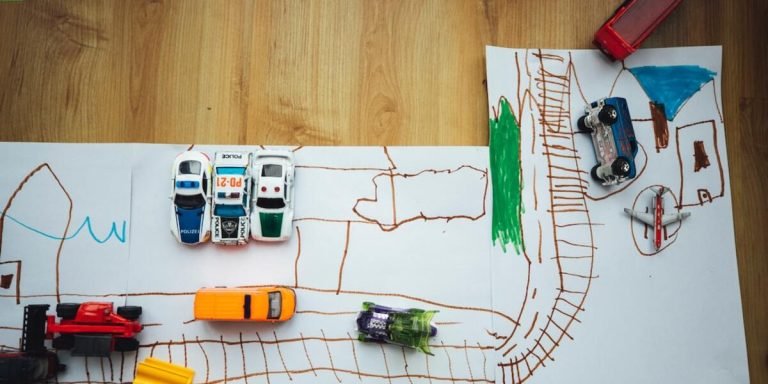What Age Do Kids Start Preschool: A Detailed Insight into Early Education
Understanding the right age for your child to begin preschool can be a complex task due to varying factors and expert opinions. The question that often pops up – “what age do kids start preschool” is not as straightforward as it may appear, because each child develops at their own pace which varies over different individual aspects such as emotional readiness, social skills, and cognitive ability.
This article aims to provide you with comprehensive information on when children typically start attending pre-school education in most parts of the world along with its importance. We delve into early childhood education norms around starting ages across various regions while also considering how developmental maturity plays an integral role in this critical decision-making process.
Did you know?
Did you know that in certain countries like Sweden, kids start preschool as early as one year old? This is because research suggests early structured learning boosts their long-term academic resilience!
Understanding Preschool Age Ranges: When to Enroll Your Child
Starting preschool is a major milestone in the life of both child and parent. Therefore, it’s crucial to understand when exactly children are ready for this new phase in their education journey especially given that we’re navigating early childhood education trends amidst an ever-changing world in 2023.
Age is often a strong determinant for starting preschool; however, age requirements can vary from one institution to another. While some accept kids as young as two years old, others may have three or even four years as their cut-off point. But understanding what age do kids start preschool isn’t only about regulatory guidelines but more importantly depending on your individual child’s developmental readiness.
Though there might be fixed norms related to enrolment ages set by educational institutions themselves , parents should also consider factors such as emotional maturity and physical readiness before deciding if it’s time for them to venture into the stimulating environment of Preschool premises . The so called “Preschool Age” therefore ranges from toddlerhood till immediate pre-kindergarten period which essentially encapsulates a vast window of development among children which must be carefully understood.
So parents need not rush with governement imposed deadlines or societal pressures but take well thought out decisions based on each one’s unique situation keeping long term benefit-being and bright future of our little ones at heart! After all every step taken towards early childhood education sets foundation stone towards balanced overall growth leading up-to adulthood working wonders way beyond academic success alone!.
Eligibility Criteria for Preschool Enrollment
Preschool enrollment plays a vital role in early childhood education, setting the foundation stone for your child’s academic journey. The foremost question that might come to parents’ minds is – “what age do kids start preschool?” Here’s what you need to know.
Generally, children begin preschool around three years of age. However, this may fluctuate slightly depending on different educational systems and individual maturity levels. In some regions or certain prestigious schools, they require a specific cut-off date; if your child has reached 3 years by that given date in the calendar year then he/she will be eligible for admission.
For instance, suppose these institutions have set September 1st as their cut-off date: If your toddler turns three before or until September 1st of enrolling year i.e.,2023 here; they are ready to step into pre-schooling world with peers!
But remember each kid moves at their own pace – emotionally & developmentally. Attending Preschool isn’t solely about achieving an appropriate chronological milestone but also includes reaching social-emotional and cognitive developmental benchmarks such as following instructions, interacting socially etc.
Lastly bear in mind that regulations vary considerably worldwide due to diverse cultures & socioeconomic landscapes shaping global preschool settings differently so always double-check with local resources/agencies pertaining to ‘when should my kid start school’.
The Best Time to Start: Developmental Readiness vs. Chronological Age
Generally speaking, children can start attending preschool around ages 3 or 4. However, this doesn’t imply that every three-year-old is ready for the big step.
Chronological age simply refers to how old your child is according to calendar years since their birth date. This factor provides an overarching guide as most educational institutions require that youngsters be at least three years old by a predetermined cut-off date before enrolling them into pre-kindergarten programs.
It’s essential not only to determine when they turn four but also to understand their unique needs and capabilities. Another significant aspect is developmental readiness, which includes:
- Cognitive skills (such as attention span)
- Social-emotional maturity (ability to separate from caregivers without extreme distress)
- Language proficiency (verbal communication ability)
These milestones can vary significantly among children, even those of the same chronological age. Leading experts suggest tailoring enrollment decisions to individual growth rather than adhering strictly to numeric guidelines.
Key Factors Influencing the Start of Preschool Education
Determining the right age for a child to start preschool is influenced by various key factors. One of these factors revolves around individual readiness, both emotionally and socially, which significantly varies with every child. Parents often are faced with this critical decision based on their understanding of their youngster’s capabilities in mingling within a group dynamic or handling separation anxiety.
Child development experts assert that most kids hit the school-readiness milestone between 2-1/2 to 4 years old. In today’s world where early childhood education has become progressively significant in shaping children’s future academic success, parents nowadays consider enrolling their tots into preschool at an earlier stage than ever before by carefully observing signs of readiness rather than strictly adhering to chronological ages.
Local regulations and norms also play crucial roles determining when kids should commence preschool education; it can largely differ from one place to another depending on specific policy directives about formal schooling commencement age setup within different jurisdictions. Furthermore, availability and affordability impact families’ decisions as well because not all regions may offer quality pre-K programs or some might find costs prohibitive thus delaying enrolment until compulsory kindergarten begins.
Assessing Emotional and Social Maturity before Starting Preschool
Understanding your child’s emotional and social maturity can play a crucial role in determining the right time for preschool. Parents often wonder, ‘what age do kids start preschool?’ As with many aspects of childhood education, there isn’t a one-size-fits-all answer.
First off, it is important to note that starting school doesn’t solely depend on chronological age or academic readiness. Emotional and social development are equally critical factors that contribute significantly towards a smooth transition into structured learning environments like preschools.
Children who exhibit secure attachments have been noted as more socially competent among peers at both pre-school level and even later during elementary years. These connections foster trust making them feel safe while expressing feelings or trying new tasks which propel growth.
Acknowledge if your little ones readily share toys without tantrums – an indicator they comprehend values related to empathy , sharing solidarity transcending beyond personal interests.
Another aspect embedded firmly within emotional maturity would be how comfortably youngsters manage transitions such as shifting from free-play sessions onto more formal activities scheduled throughout typical pre-school days .
Lastly but vitally too; observe if their capacity involving focus spans adequate durations allowing efficient engagement pertaining assigned tasks besides demonstrating willingness seeking help when needed instead getting frustrated quickly thus impacting productivity negatively.
Cognitive Skills Milestones: Is Your Child Ready for an Early Start?
As a parent or educator, one of the critical things to consider when deciding what age do kids start preschool is their cognitive development. Notably, certain cognitive skills milestones can help determine if your child is ready for an early start.
Firstly, it’s essential to understand that every kid progresses at different rates—cognitive growth varies from child-to-child; therefore comparisons might not necessarily be beneficial. However, general markers typically indicate readiness for starting school.
Language comprehension and expression are two key aspects of cognitive development looked upon before enrolling children into preschools in 2023. Children who have begun stringing words together into simple sentences may more readily adapt to the learning environment than those still heavily reliant on non-verbal communication.
Spatial awareness also plays an important role here – how well does your little one interact with his surroundings? For example, building block towers or solving puzzles indicates a fundamental understanding of shapes and space management – vital marks showing they could comfortably transition into structured schooling environments.
Problem-solving abilities should not be overlooked either: Is he/she able to put away toys after playtime? Do they make attempts at dressing themselves up? These self-help skills underscore budding problem-solving capabilities that suggest kindergarten-readiness!
Attention span matters too! Preschool requires greater focus compared with home settings where activities change rapidly based on whim. If a youngster shows interest longer in specific tasks like reading picture books or playing games—it might just mean they’re now ripe enough for preschool education!
Navigating State and Local Regulations on Preschool Entry Ages
State and local rules play a crucial role in determining when your child can start their preschool journey. In most regions across the United States, children are eligible to attend preschool at age 3; however, certain guidelines vary depending on specific state or local laws. For instance, some states may follow a cut-off date system where children must have reached their third birthday by a particular month to be considered for enrollment within that academic year.
Understanding these regulations is vital as you plan for your young one’s educational path. Many parents often find themselves questioning “what age do kids start preschool?” and the answer isn’t always straightforward due it being largely reliant on region-specific criteria. These policies are designed keeping developmental milestones of different ages into consideration so as to curate an optimal learning environment suitable for the overall growth of every child.
As we navigate this complex web of rules together in 2023, note that early childhood education isn’t just about starting school ‘early’ but rather striking a balance between social-emotional development and introduction to structured learning experiences. By gaining clarity on when exactly is permissible or ideal according to law for your kid’s initiation into formal schooling will help put things in perspective while making informed decisions regarding their future educational endeavors.
Decoding Varying State Policies on Minimum Age Requirements
While most states agree that children should be at least three years old, exact cutoff dates and admission times differ widely. For example, in California and New York, if your child turns four before September 1st, they qualify for a spot in public pre-kindergarten classrooms.
On the other hand,some southern states like Georgia have December 1st as their cutoff date while others such ass Tennessee require your little one to turn five by August 15th to enter kindergarten- meaning in practice some may join at just past their fourth birthday.
One crucial thing parents need to remember is these regulations aren’t necessarily developmental recommendations; they’re administrative guidelines enabling equal opportunities. Just because your child meets the arbitrary cut-off doesn’t mean you must rush them into school – it means you have an option available.
How Local School Districts Can Affect Your Child’s Starting Age
Understanding the nuances of local school districts can be a game-changer when considering “what age do kids start preschool”. It’s essential to note that each state and even locale has its own set of regulations. Hence, you may find varying minimum ages for children to begin their educational journey.
Firstly, it’s important to know how your specific district operates. Some regions allow kids as young as three years old into certain prekindergarten programs in 2023 while others demand an age limit of four or five before classes commence.
Secondly, birth-date cutoffs also play a significant role in determining if your child is eligible for preschool entry within a given academic year. Different states have different cut-off dates which means there might not necessarily be one uniform ‘start’ date universally applicable across all areas.
Thirdly, parents should consider assessing their child’s readiness level beyond simply meeting the stated regulatory requirement – weighing factors like emotional maturity along with cognitive development could give them vital context towards making this decision smoothly.
Conclusion
All said and done, remember there’s no hard and fast rule on “what age do kids start preschool”. It’s crucial to identify when your little one is ready emotionally, socially, and academically. The journey of early education should be unique for every child – a heady mix of playtime learning enriched with new friendships.
We exist as an extensive resource library aiding you in this beautiful chapter called childhood education. Our posts cater specifically to parents or educators looking for insights into the labyrinthian world of teaching children. Take some time out to thoroughly browse through our site that caters not only to early education tips but also offers support mechanisms for parenting enthusiasts like yourself!







